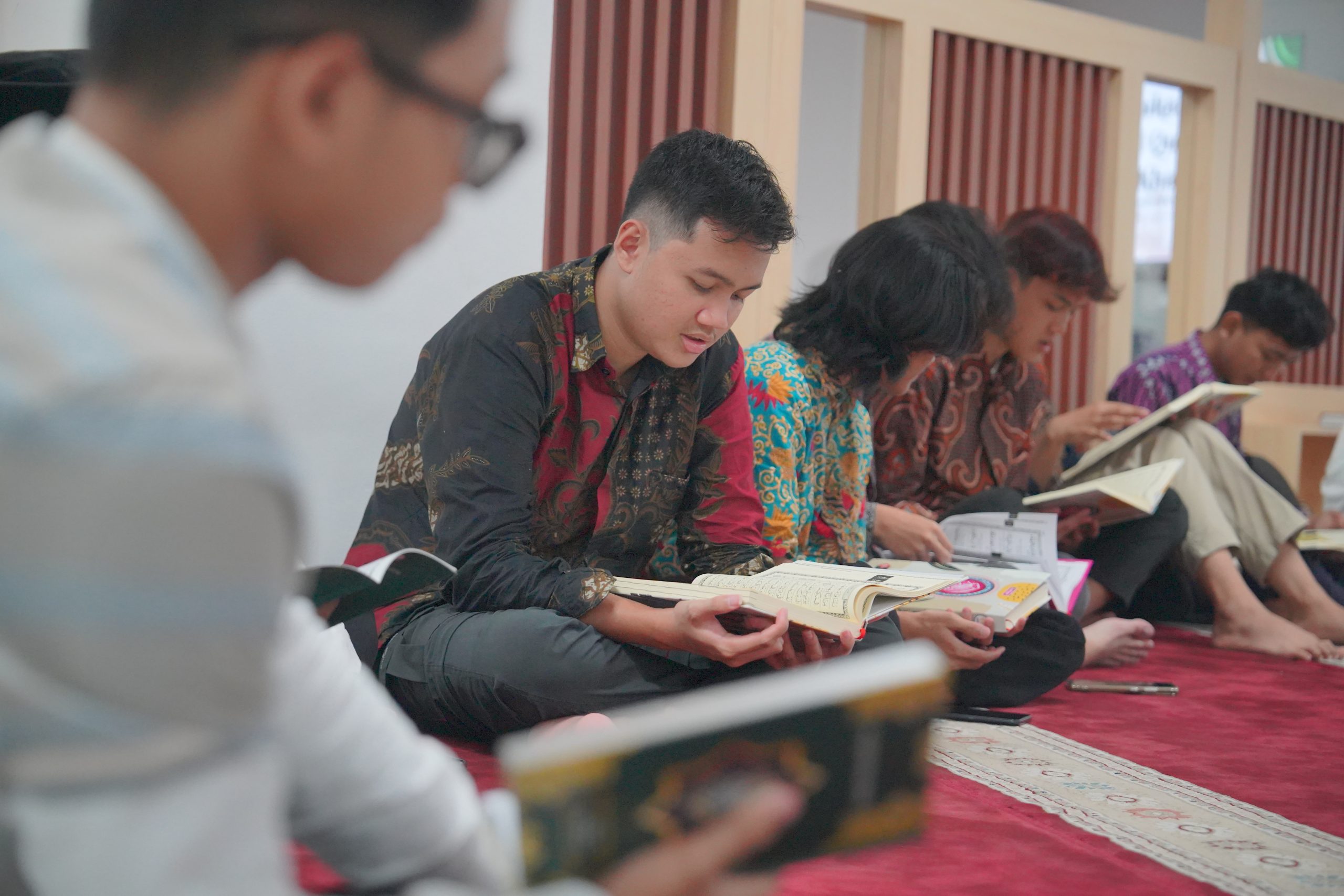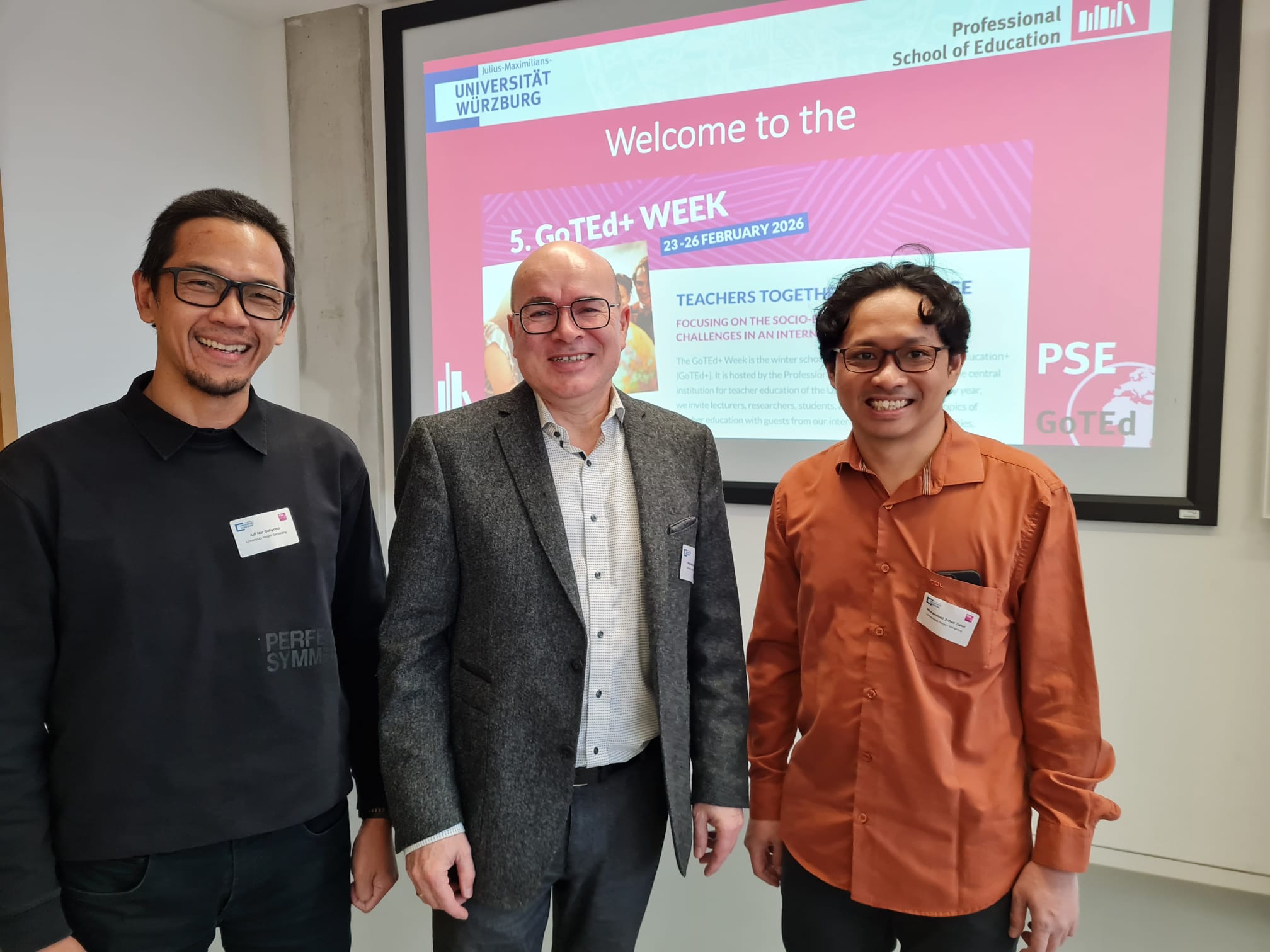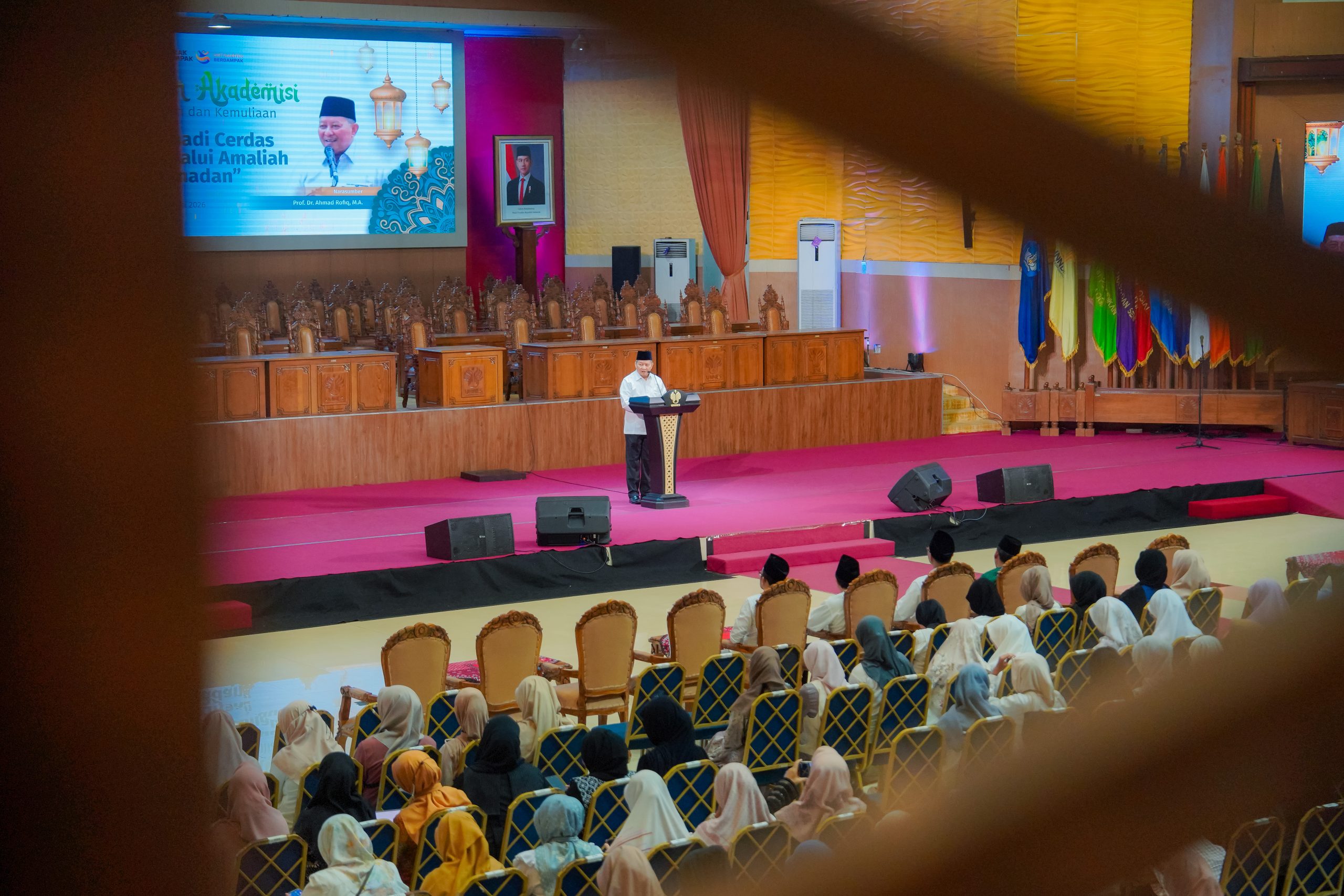Arus globalisasi menuntut pendidikan untuk membuat manusia mampu beradaptasi pada peradaban global. Bukan hanya bisa berkomunikasi dengan orang asing, manusia juga dituntut untuk membuka diri dengan budaya dari berbagai negara yang ada. Oleh karena itu, pendidikan multikultur dalam pendidikan tinggi menjadi hal penting untuk dilakukan.
Itulah yang menjadi tujuan diadakannya seminar Multicultural Education (Pendidikan Multikultur) oleh Jurusan Bahasa dan Sastra Inggris pada Selasa (17/10) di Gedung Bundar, Dekanat Fakultas Bahasa dan Seni Universitas Negeri Semarang (FBS UNNES).
Acara yang diadakan oleh Jurusan Bahasa dan Sastra Inggris ini adalah penutup dari serangkaian program hibah Ristekdikti, World Class Professor. Program ini diikuti oleh kalangan dosen, baik dari FBS UNNES, Universitas Stikubank (Unisbank), Universitas Islam Sultan Agung (Unissula), Universitas Dian Nuswantoro (Udinus), dan Universitas Muhammadiyah Semarang (Unimus).
Seminar kali ini menghadirkan tiga pembicara, yakni Prof Elizabeth Rata, selaku Profesor dari University of Auckland, Prof Dr Agus Nuryatin, MHum, selaku Dekan Fakultas Bahasa dan Seni, serta Hendi Pratama, MA, selaku Dosen Jurusan Bahasa dan Sastra Inggris UNNES.
Membuka sesi materi seminar, Hendi memberikan materi tentang posisi pendidikan multikultur di masyarakat melalui bahasa. Ia menjelaskan bahwa pragmatis dalam bahasa digunakan manusia untuk bisa berkomunikasi dengan manusia lainnya sesuai dengan tujuan yang diinginkan berdasarkan budayanya. Pemahaman penggunaan bahasa dari budaya yang berbeda inilah yang harus dikenalkan pada anak sejak dini.
Sesi seminar dilanjutkan dengan materi Prof Elizabeth mengenai ilmu pengetahuan dan universitas. Dalam penjelasannya, universitas disebut sebagai tempat di mana ilmu dibentuk. Bukan hanya satu buah ilmu, melainkan terdiri dari banyak disiplin ilmu yang saling melengkapi satu sama lain.
Kaitannya dengan pendidikan multikultur, Elizabeth menjelaskan bahwa terdapat dasar yang sama dari semua ilmu yang berbeda di dunia. Sebagai contoh, setiap negara memiliki pemahaman yang berbeda mengenai musik, namun, terdapat standar dasar yang sama mengenai not, irama, dan lainnya. Hal dasar inilah yang harus tetap dijaga untuk dikembangkan oleh universitas.
Di sesi terakhir, Prof Agus memberikan materi mengenai usaha yang telah dilakukan oleh FBS UNNES untuk meraih visi universitas sebagai universitas konservasi. Dalam hal ini, FBS UNNES sebagai fakultas humanis melakukan konservasi dengan mempertahankan budaya yang telah ada ataupun mengembangkan budaya tersebut.
Usaha mempertahankan budaya dilakukan dengan mulai menerapkan penggunaan tulisan aksara jawa pada tanda pengenal dekan dan beberapa nama ruangan yang ada di FBS. Sedangkan, pelestarian budaya dengan pengembangan dilakukan pada kesenian tari yang dilakukan oleh jurusan Seni Drama Tari dan Musik (Sendratasik).
(Cesar Abdul, Student Staff)



